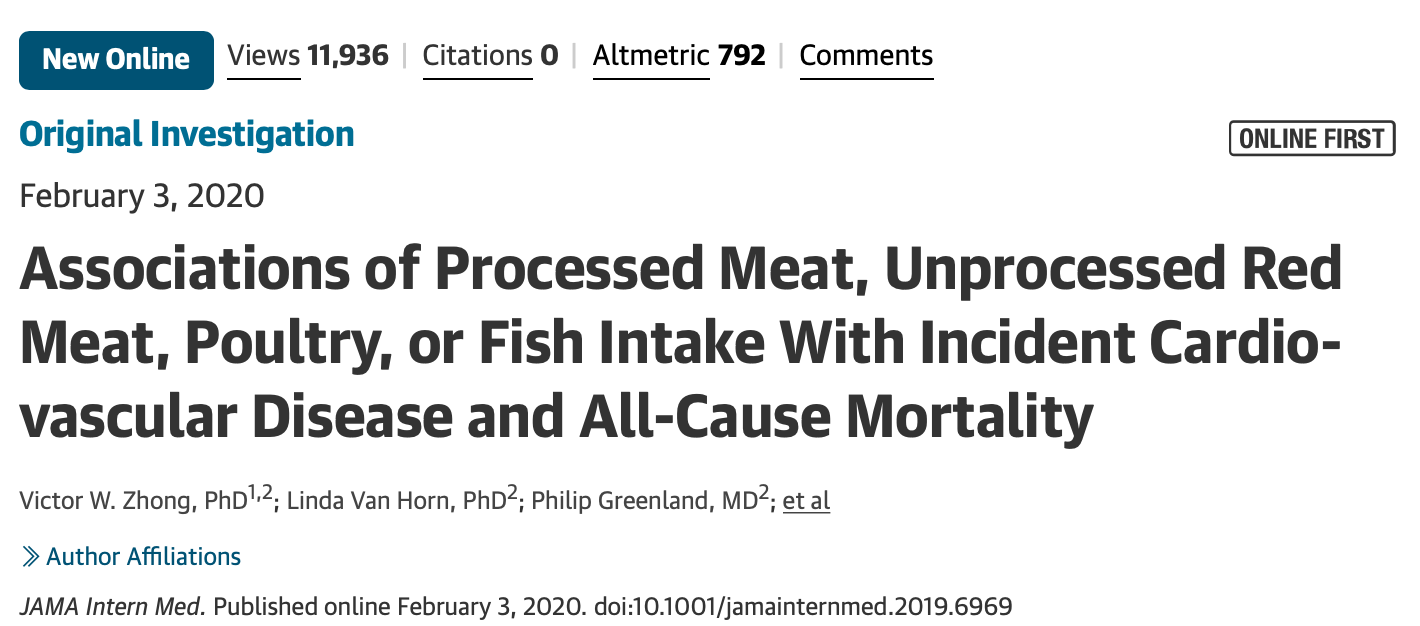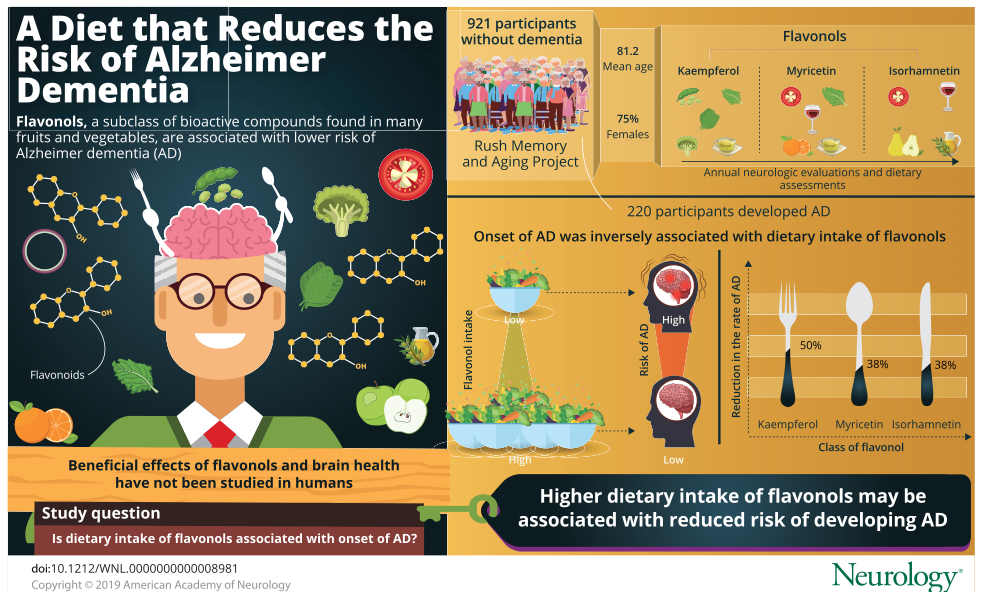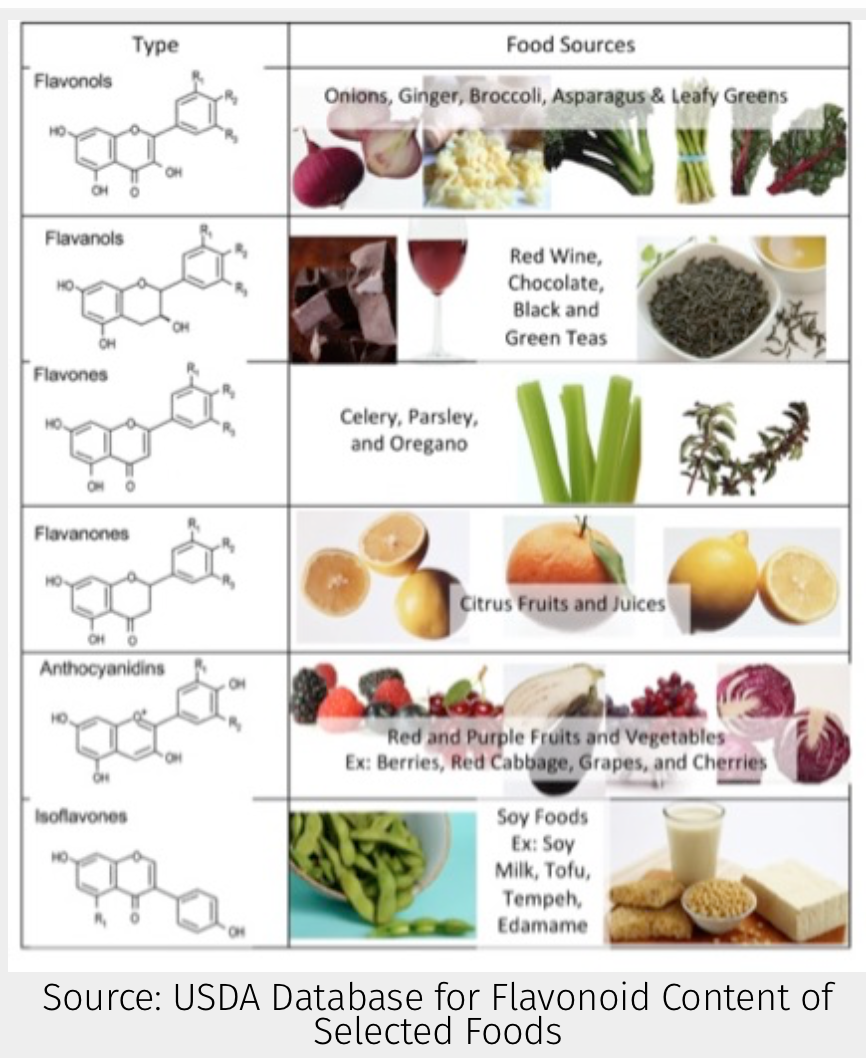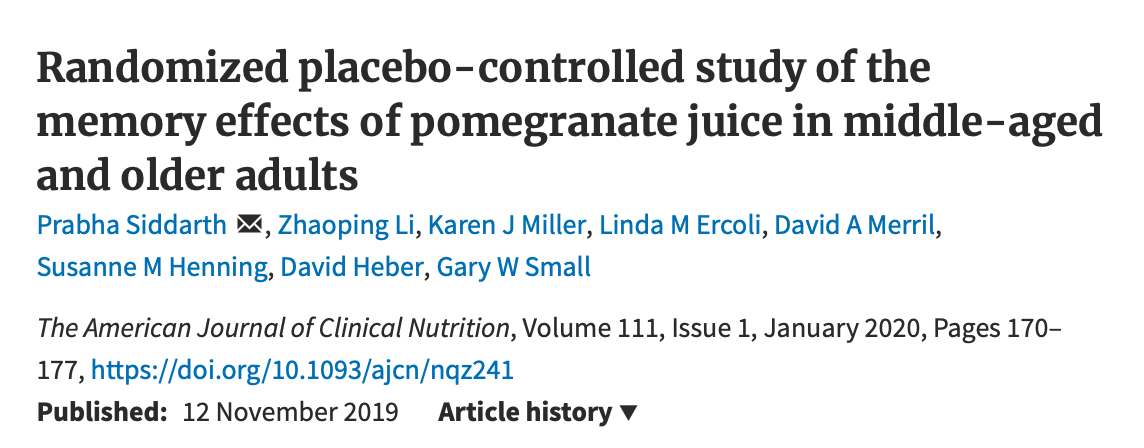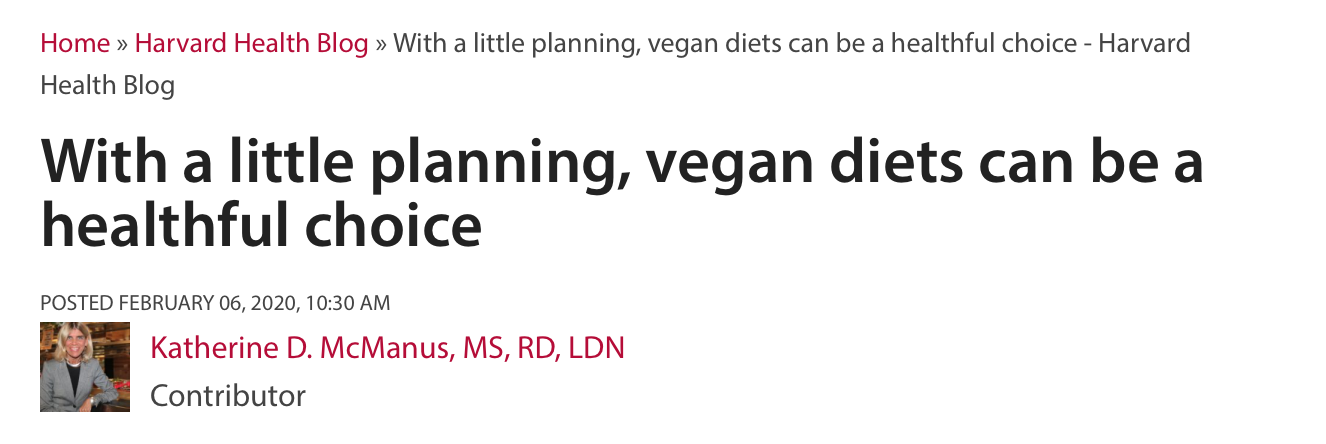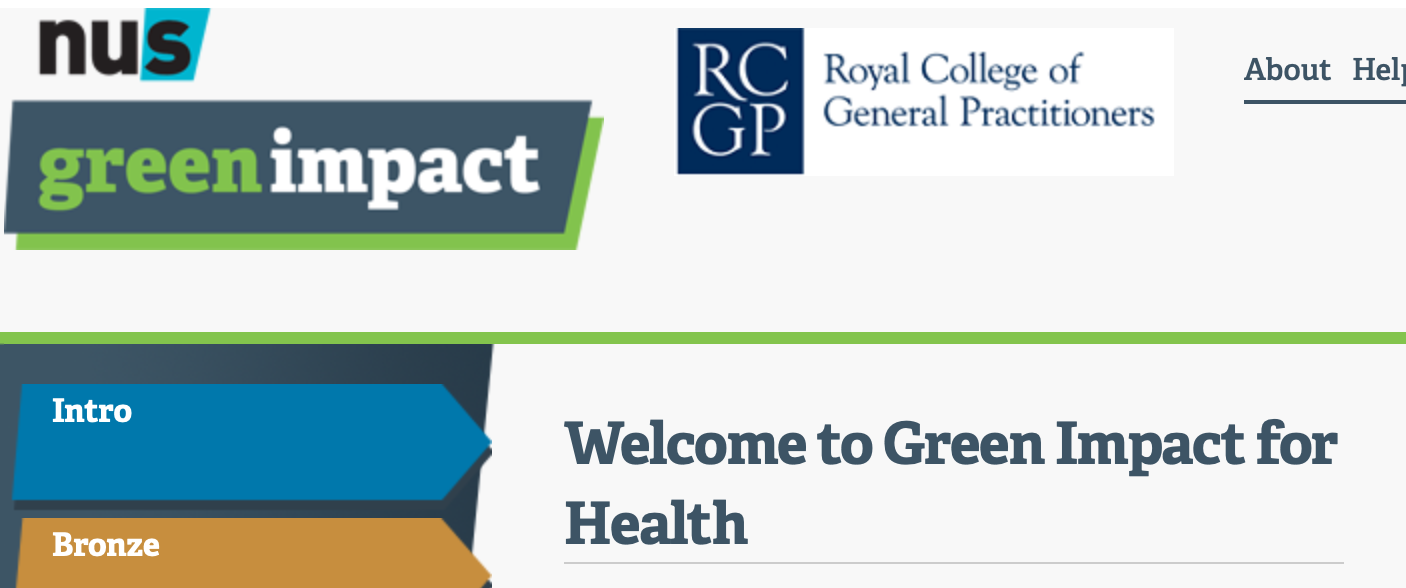A review of the weeks plant-based nutrition news 9th February 2020
Another good week in the world of plant-based nutrition. I was fortunate enough to have the opportunity to speak about plant-based diets at the House of Lords on Feb 4th 2020. The All Party Parliamentary Group Food and Health Forum held a meeting to discuss plant-based diets. Listen to my video summary below.
Here are my highlights of the scientific literature.
THE EFFECT OF MEAT, POULTRY AND FISH CONSUMPTION ON CARDIOVASCULAR DISEASE AND DEATH: This study examines the associations of processed meat, unprocessed red meat, poultry, or fish intake with the risk of cardiovascular disease (CVD) and all-cause mortality. Data from 6 prospective cohort studies from the US were pooled together and included 29682 participants, 6963 CVD cases and 8875 deaths. The participant were divided into quartiles based on the amount of meat, poulty and fish eaten. For example, the range of processed red meat consumption amongst participants was 0.5–4.6 servings a week, for unprocessed red meat 1.3–5.9 servings/week, for poultry 1–3 servings/week and for fish 1–3.3 servings/week. The study found that unprocessed red meat and processed red meat consumption significantly increased the risk of CVD (11% and 16% for highest vs. lowest quartile respectively) and all-cause mortality (13% and 9% respectively). Intake of poultry was also associated with a 9% increased risk of CVD, but not associated with overall mortality and no association was observed for fish consumption with either outcome. Interestingly, even just 2 servings a week of processed meat compared to no servings increased the risk of CVD by 7%.
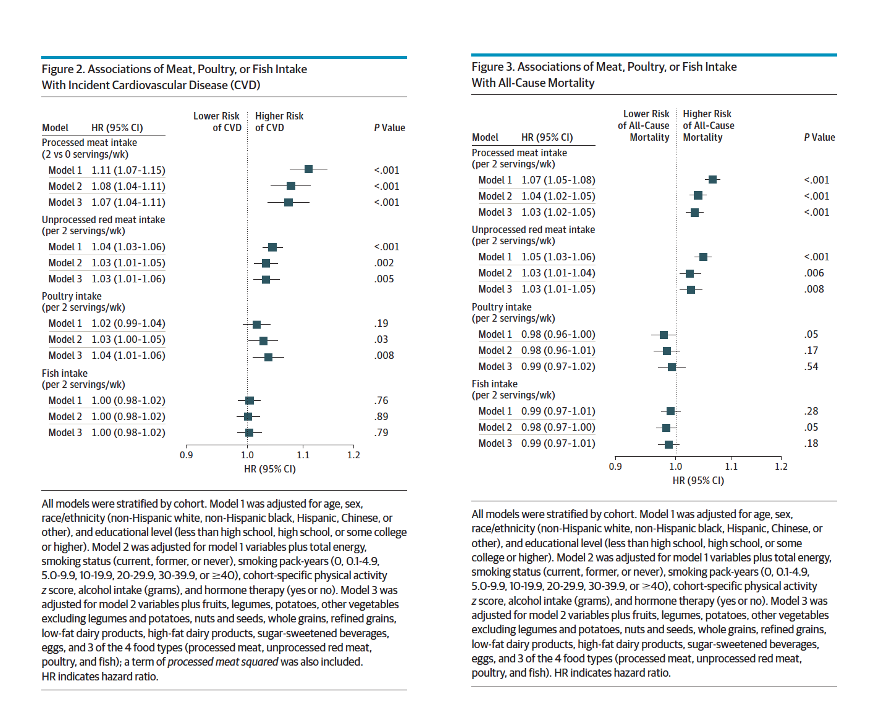
These are interesting findings given that previous data have not consistently shown an impact of poultry consumption on CVD risk and death. In addition, fish consumption is generally considered beneficial for cardiovascular health, yet this was not apparent in the current study. However, it should be noted that data on cooking preparation was not available so the impact of fried fish or poultry can not be accounted for and thus a limitation of the data. What is also interesting is that even in those consuming the healthiest diet based on the alternate healthy eating index, which scores whole plant foods positively, there was still a negative impact of consuming any red meat.
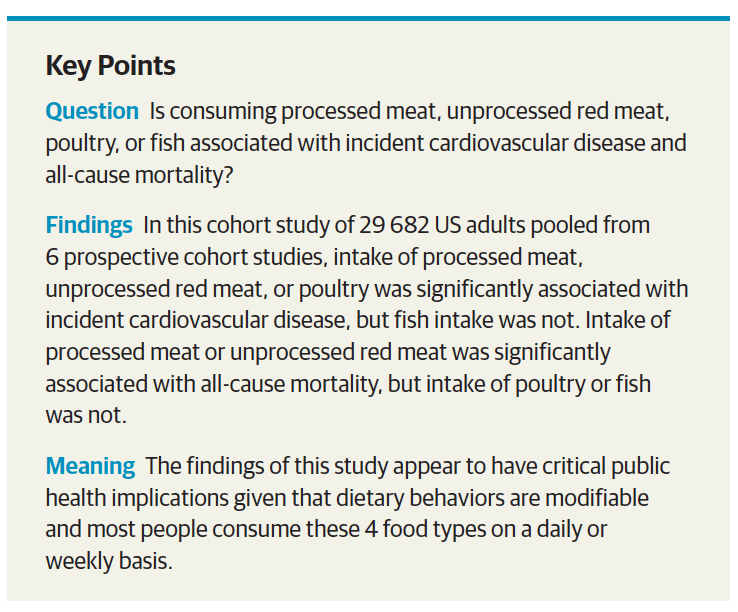
DIET AND ALZHEIMER DEMENTIA: Alzheimer dementia (AD) is a rising global concern. We know that a healthy diet and lifestyle could prevent up to a third of cases if not more. The WHO recommends a Mediterranean-type diet for dementia prevention. The MIND diet, a hybrid between the DASH and Mediterranean diets, has been shown to reduce the risk of cognitive decline. These diet patterns are high in whole plant foods but also include fish and healthy sources of fat such as olive oil.
The study highlighted examines for the first time the impact of flavonoids from food on the risk of AD. Flavonoids are a class of polyphenol representing more than 5,000 bioactive compounds that are found in a variety of fruits and vegetables. The study included 921 participants from a community-based prospective cohort study in the US who were free of dementia at recruitment. 220 people developed AD during the median follow up of 6.1 years. The mean age of the participants was 81 years and 75% were female. Participants completed annual neurologic evaluations and dietary assessments using a validated food frequency questionnaire.
The study found that those consuming the highest intake of flavonoids had a significantly reduced risk of developing AD with the risk reduction as high as 50%. The flavonoids kaempferol and isorhamnetin had a particularly strong effect. The impact of flaoanoid consumption was independent of tranditional CVD risk factors and genetic risk for AD. The top food item contributors to the individual flavonols in the study cohort were kale, beans, tea, spinach, and broccoli for kaempferol; tomatoes, kale, apples, and tea for quercetin; tea, wine, kale, oranges, and tomatoes for myricetin; and pears, olive oil, wine, and tomato sauce for isorhamnetin.
So its plant foods for the win again with no down side to increasing the consumption of flavonoid-rich foods (note — red wine is not the optimal source of flavonoids as alcohol causes cancer).
POMEGRANATE JUICE FOR BRAIN HEALTH: Continuing on the theme of brain health, it is good to see a randomised nutrition study testing the effect of pomegranate juice on memory. Pomegrante juice is rich in polyphenols, which may counteract oxidative stress and inflammation that is associated with cognitive decline. 261 participants aged 50–75 years were randomly assigned to either 236.5ml (8oz) pomegranate juice per day or placebo for 12 months. 200 people completed the study. Cognitive tests of memory were performed at baseline, 6 and 12 months. The results showed a benefit for visual memory skills but not verbal memory in the intervention group.
There are clear limitations to this study; it is small with short follow up. In addition, I think it is unlikely that one food or drink alone is going to provide the solution we are looking for when it comes to healthy aging. Nonetheless, it helps emphasise the role of a diet high in polyphenols, which are generally found in fruits and vegetables. Given that the impact of pharmaceutical medications on the progression of cognitive decline has to date been negligible, a healthy plant-based diet is the better option. I was interested to learn that the French Government has now stopped reimbursement of drugs for AD due to their lack of efficacy and side-effects and because money is better spent on interventions with a stronger evidence base and towards supporting carers and families. Do check out the book — Alzheimer’s Solution — by Team Sherzai for further information on the role of diet and lifestyle on the prevention of AD.
MIS-INFORMATION IN THE MEDIA: It seems the BBC are on a mission to spread false information on the impact of vegan diets on human health. Two recent articles have been biased and inaccurate. We put together a letter of complaint to the BBC with the help of ProVeg UK.
So it’s a nice change to see a positive article on vegan diets from a reputable source such as the Harvard Medical School. The article is accurate and pretty balanced. My only criticism is that to single out a vegan diet needing to be well planned suggests that other diets do not. Of course, whatever diet pattern you choice to follow needs to be well planned because if not we end up in the situation we find for most of the UK population, which is a heavy reliance on processed foods and a diet which is deficient in fibre, potassium, magnesium, folate and plant foods in general. Nonetheless, this is a good article to share with those that deny the possibility of good health on a vegan diet.
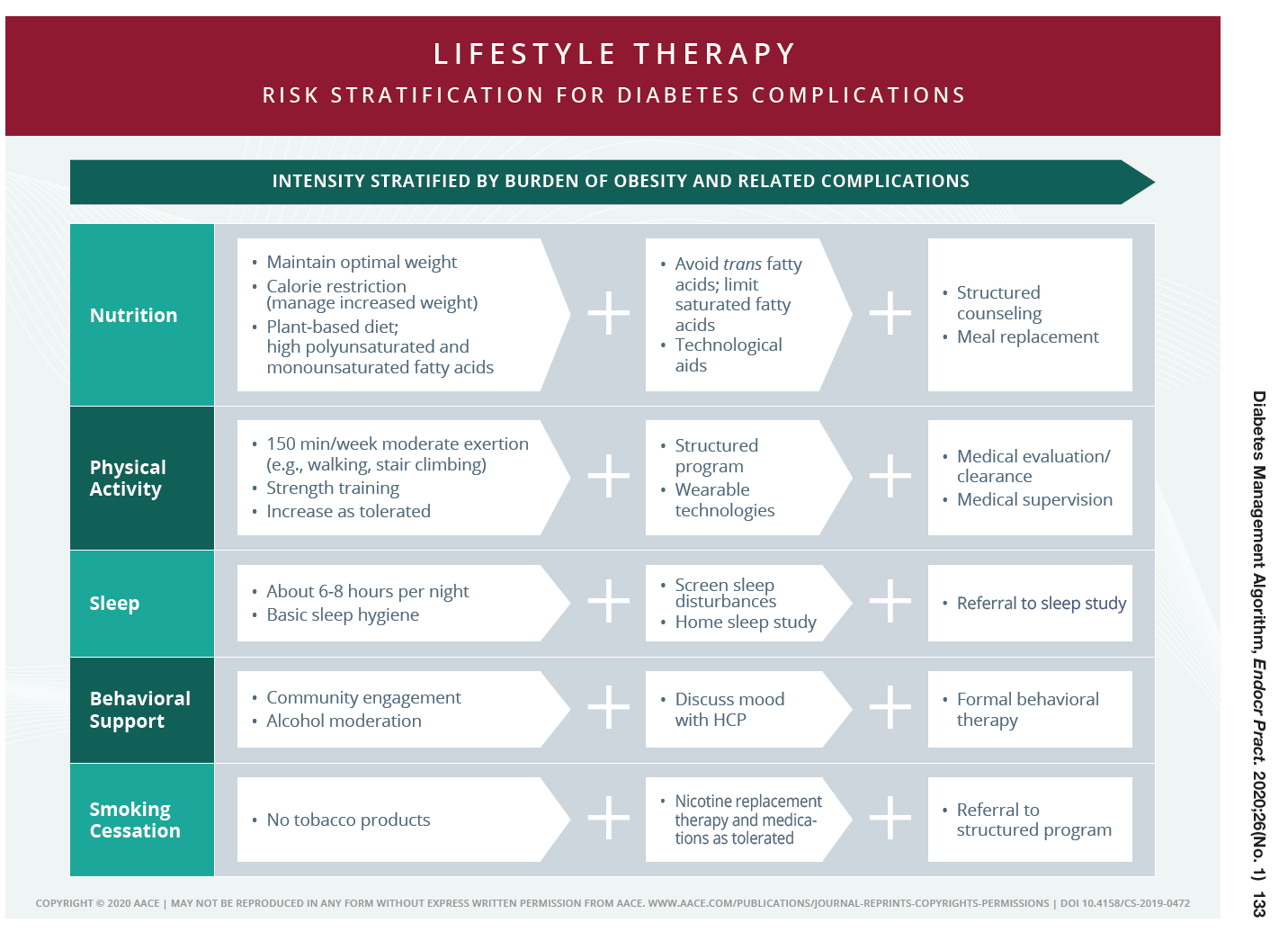
GUIDELINES FOR THE MANAGEMENT OF TYPE 2 DIABETES. Each year the American Association of Clinical Endocrinologists issue updated guidelines for management of type 2 diabetes. Diet and lifestyle interventions are considered essential and for several years now the AACE have recommended a predominately plant-based diet for all patients with type 2 diabetes. The 2020 guidelines continue to do the same.
CALLING ALL GP PRACTICES IN THE UK: I was really excited to learn about the The Green Impact Initiative for GP practices, which aims to make GP practices carbon neutral by 2030. There is a toolkit and different awards levels based on what the practice is able to achieve. For the silver award one of the criteria is ‘The practice has at least one named doctor or nurse who has learnt about and follows the evidence and benefits of Wholegrain Plant based nutrition in Primary Care, and this person has disseminated their learning to at least 50% of clinical staff’. Under further information it goes on to say ‘Diet is a key contributor to poor human health (e.g. cardiovascular disease, cancer, type II diabetes) as well as planetary health (e.g. livestock farming has major impacts causing deforestation, soil erosion and green house gas emissions). Wholegrain, plant based diets are increasingly recognised as powerful tools to reduce the Non Communicable Disease burden and reduce global warming. However many areas of nutritional health are complex and giving patients simple nutritional advice is not straightforward in general practice. Having a practice lead for nutrition could benefit the health of the practice population. Schemes for patients could include individual or group sessions and supermarket walks to discuss better shopping habits. The Canadian ‘food plate’ follows the wholegrain plant based ethos https://food-guide.canada.ca/en/tips-for-healthy-eating/make-healthy-meals-with-the-eat-well-plate/. The NHS Eat well guide is at https://www.nhs.uk/live-well/eat-well/the-eatwell-guide/ Simple patient tools such as the daily dozen app can be helpful to give advice to patients https://nutritionfacts.org/video/dr-gregers-daily-dozen-checklist-2/. The EAT-Lancet report is the first full scientific review of what constitutes a healthy diet from a sustainable food system https://eatforum.org/eat-lancet-commission/. There is a comprehensive six week (£350) on line learning course course accredited for 15 CPD hours by the British Society of Lifestyle Medicine (BSLM) at https://www.winchester.ac.uk/news-and-events/events/event-items/plant-based-nutrition-a-sustainable-diet-for-optimal-health.php’
Can you believe that the Royal College of GPs in the UK is recommending Nutritionfacts.org, Michael Greger’s daily dozen and my plant-based nutrition course at Winchester University!! No wonder I have been inundated with enquiries and am full for this academic year.
If you have found this article useful, please follow my organisation ‘plant-based health professionals UK’ on Instagram @plantbasedhealthprofessionals and facebook. You can support our work by joining as a member or making a donation via the website

